
One of Britain’s greatest landscape artists, Eric Ravilious, is killed in a plane crash while on commission as Official War Artist in Iceland in 1942. His life is as compelling and enigmatic as his art, set against the dramatic wartime locations that inspire him. This film brings to life this unique and still grossly undervalued British artist caught in the crossfire of war 80 years ago, whose legacy largely sank without trace, until now…

Producer
The Rohingya are an ethnic Muslim minority from Myanmar's Rakhine State who have suffered several decades of persecution by the Burmese government. Many fled to neighbouring Bangladesh and other countries in search of safety. Following widespread ethnic cleansing by the Burmese army in August 2017, a mass exodus of over 700,000 Rohingya took place from Myanmar to Cox's Bazar, where one million refugees now live. Filmed over several months in Cox's Bazar, Rohingya is an observational, poetic record of the community's everyday life, social rituals, and the camp's unique landscapes.

Director
The Rohingya are an ethnic Muslim minority from Myanmar's Rakhine State who have suffered several decades of persecution by the Burmese government. Many fled to neighbouring Bangladesh and other countries in search of safety. Following widespread ethnic cleansing by the Burmese army in August 2017, a mass exodus of over 700,000 Rohingya took place from Myanmar to Cox's Bazar, where one million refugees now live. Filmed over several months in Cox's Bazar, Rohingya is an observational, poetic record of the community's everyday life, social rituals, and the camp's unique landscapes.

Director
In February 2019, the Hong Kong government proposed a bill that would have allowed the extradition of criminal suspects from Hong Kong to face trial in mainland China. The controversial bill sparked immediate outrage over widespread fear of arbitrary detention and politically motivated trials that would decimate Hong Kong’s autonomy under ‘one country, two systems.’ Protests escalated into epic pro-democracy demonstrations, in part led by young people connected via social media. COCKROACH, filmed during the height of the protests, captures the extraordinary intensity of an unprecedented era in Hong Kong’s history.

Producer
As the first city hit in the global pandemic, Wuhan, with a population of 11 million, was placed under an unprecedented lockdown. The film showcases the incredible speed and power of China’s state machinery in its fight against the virus. On the other side of the scale is the crushing bureaucracy of that same machine.

Director
As the first city hit in the global pandemic, Wuhan, with a population of 11 million, was placed under an unprecedented lockdown. The film showcases the incredible speed and power of China’s state machinery in its fight against the virus. On the other side of the scale is the crushing bureaucracy of that same machine.

Producer

Writer

Director
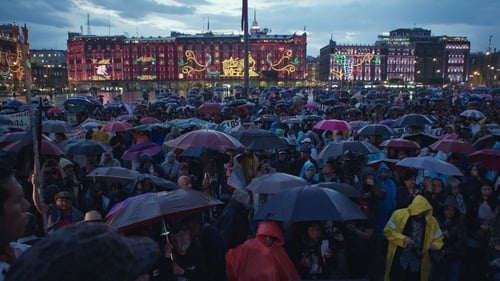
Director of Photography
Since an attack on students of the Ayotzinapa Rural Teachers' College in 2014 resulted in six deaths and in the forced disappearance of 43, the students’ families have been living in limbo with their unanswered questions, their struggle embodying the psychological and emotional toll of endemic violence upon Mexican society.

Producer
Since an attack on students of the Ayotzinapa Rural Teachers' College in 2014 resulted in six deaths and in the forced disappearance of 43, the students’ families have been living in limbo with their unanswered questions, their struggle embodying the psychological and emotional toll of endemic violence upon Mexican society.

Director
Since an attack on students of the Ayotzinapa Rural Teachers' College in 2014 resulted in six deaths and in the forced disappearance of 43, the students’ families have been living in limbo with their unanswered questions, their struggle embodying the psychological and emotional toll of endemic violence upon Mexican society.
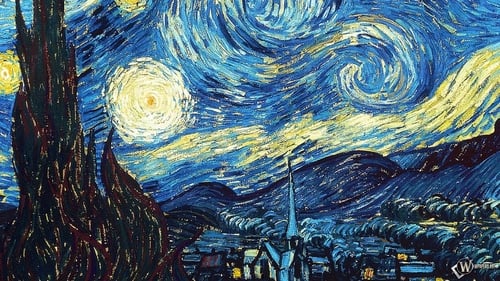
Himself
Documentary about famous painter Vincent van Gogh.

From ancient cave paintings to Twitter feeds and deep fakes, propaganda's rapid progression hasn't compromised its potency. Tracing its effective use by religious figures, politicians and marketers, director Larry Weinstein crafts a persuasive study of the mechanics behind propaganda. This fascinating investigation confronts us with timely questions: If we grow up surrounded by propaganda, how do we know what is true? What risks are inherited by a society tricked into their perceptions? Freedom of speech is critical to a democracy's survival, yet demagogues have consistently exploited that freedom to coerce willing supporters. Contemporary artists, including Kent Monkman, Shepard Fairey and Ai Weiwei, analyze their politically motivated work, creatively co-opting the conventions of disinformation that have permeated their respective cultures. As our platforms for spreading ideas continue to expand in a digital age, dangerous lies have never been better disguised.

Self
Ai Weiwei, famous for his large-scale installation work and his dogged social justice advocacy, created a career-defining work in 2015 with @Large, mounted at Alcatraz, the emblematic site associated with egregious incarceration conditions and radical Native American protest. At the core of @Large were portraits of prisoners of conscience coupled with the opportunity to write letters of solidarity to the imprisoned. In her impassioned and powerful film, exhibition curator Cheryl Haines visits several current and former prisoners, including American whistleblower Chelsea Manning, and learns how these letters were vital to their survival. “The misconception of totalitarianism is that freedom can be imprisoned. This is not the case. When you constrain freedom, freedom will take flight and land on a windowsill.” — Ai Weiwei

Producer
Europe's refugees are met at eye level in a film by the Chinese artist Ai Weiwei, who defends the ideals of humanism in the midst of the crisis.

Director
Europe's refugees are met at eye level in a film by the Chinese artist Ai Weiwei, who defends the ideals of humanism in the midst of the crisis.

Europe's refugees are met at eye level in a film by the Chinese artist Ai Weiwei, who defends the ideals of humanism in the midst of the crisis.
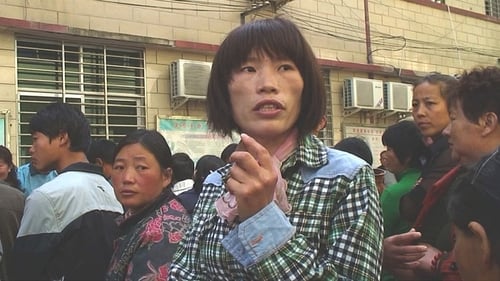
Executive Producer
Twenty years after China’s scandalous “Black Blood Economy,” when a million Chinese citizens were infected with HIV and countless died from AIDS, thousands of rural peasants still suffer the consequences, their plight hidden from the eyes of the world and strongly censored by Chinese authorities.
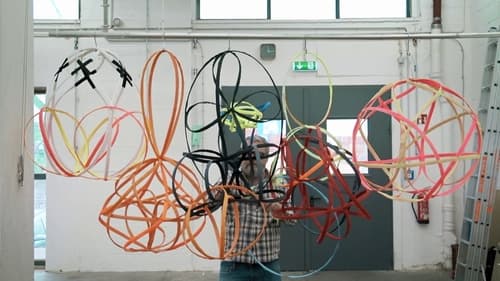
Himself
A 30 years odyssey: the world's most intriguing artists and thinkers from the fields of visual art, music, filmmaking, acting, literature, philosophy, politics, business and science, are asked the same question: "Why are you creative?"

Himself
The documentary registers with detail this first visit to Argentina. It's a meditation on the artistic and conceptual processes that Ai Weiwei needs to think of his art. The images dialogue between the director and his instagram, revealing an intimate side, close to the people.
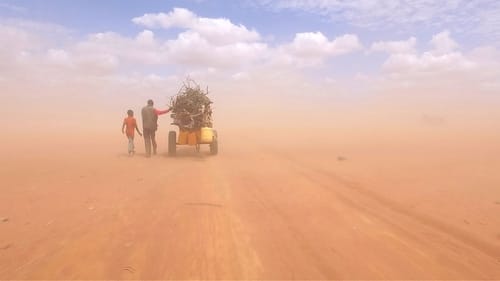
Producer
More than 65 million people around the world have been forced from their homes to escape famine, climate change and war, the greatest displacement since World War II. Filmmaker Ai Weiwei examines the staggering scale of the refugee crisis and its profoundly personal human impact. Over the course of one year in 23 countries, Weiwei follows a chain of urgent human stories that stretch across the globe, including Afghanistan, France, Greece, Germany and Iraq.

Director of Photography
More than 65 million people around the world have been forced from their homes to escape famine, climate change and war, the greatest displacement since World War II. Filmmaker Ai Weiwei examines the staggering scale of the refugee crisis and its profoundly personal human impact. Over the course of one year in 23 countries, Weiwei follows a chain of urgent human stories that stretch across the globe, including Afghanistan, France, Greece, Germany and Iraq.

Director
More than 65 million people around the world have been forced from their homes to escape famine, climate change and war, the greatest displacement since World War II. Filmmaker Ai Weiwei examines the staggering scale of the refugee crisis and its profoundly personal human impact. Over the course of one year in 23 countries, Weiwei follows a chain of urgent human stories that stretch across the globe, including Afghanistan, France, Greece, Germany and Iraq.

Swiss collector Uli Sigg has played in the time of economic opening of China by Mao an essential role, which is still continuing. To better understand China, in 1980 as an entrepreneur and business expert to the country called Sigg art turns to and wears for years the most important collection of contemporary Chinese art together. THE CHINESE LIVES OF ULI SIGG granted for the first time a comprehensive insight into the exciting and extraordinary life of the entrepreneur, diplomat and art collector. Contemporary artists like Ai Weiwei, Zeng Fanzhi, Cao Fei, Fang Lijun Wang Guangyi or consider him a friend and mentor to whom they could entrust their works, to protect them against the arbitrary destruction of the authorities. The majority of them are over the Sigg museum M + in Hong Kong, which expected to open in 2019 and the works will be presented to the general public.

Self
Ai Weiwei is a global star and an enigma. DW followed him for a year for this intimate portrait. The film shows Ai Weiwei at home, at work, and on the road for work, as he prepares his latest series of works focused on refugees and their fates.

Director
A Henan opera based on the complete recording of a lawsuit filed against the Beijing Local Taxation Bureau by Ai Weiwei's Fake Cultural Development Ltd, which had been fined a sum of RMB15.22 million in tax penalties for alleged tax evasion.

Producer
A Henan opera based on the complete recording of a lawsuit filed against the Beijing Local Taxation Bureau by Ai Weiwei's Fake Cultural Development Ltd, which had been fined a sum of RMB15.22 million in tax penalties for alleged tax evasion.

Director
In August 2014, Ai Weiwei was invited as one of the participating artists for the Fukushima Nuclear Zone by the Japanese art coalition Chim↑Pom, as part of the project "Don't Follow the Wind". Ai accepted the invitation and sent his assistant Ma Yan to the exclusion zone in Japan to investigate the site. Ai brought about two projects, "A Ray of Hope" and "Family Album" after analyzing materials and information generated from the site.
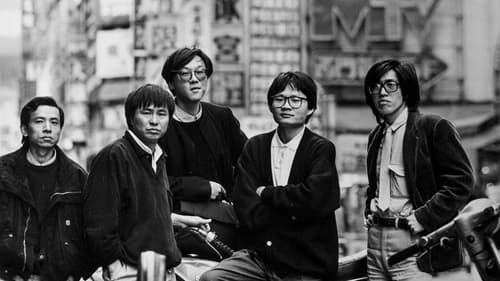
Self
With Taiwan remaining in the grip of martial law in 1982, a group of filmmakers from that country set out to establish a cultural identity through cinema and to share it with the world. This engaging documentary looks at the movement's legacy.

Himself
Documentary about artist Ai Weiwei's 2014 exhibition in Berlin.

In the not-quite end-times, a woman, a man, a lover and a water smuggler navigate a tumultuous future city on the brink of a water shortage. A "low-fi sci-fi film" secretly made in China.

Producer
The Bazhou police wrongfully arrested seven people without any evidence around September 16, 2001, for their involvement in the murders of two families. The police have long been suspected of abusing their authority, using “Third Degree” techniques and fabricating false evidence, among other illegal acts. In the years since their arrests, the wrongfully convicted have been put on death sentence, death sentence with reprieve, and life imprisonment.

Director
The Bazhou police wrongfully arrested seven people without any evidence around September 16, 2001, for their involvement in the murders of two families. The police have long been suspected of abusing their authority, using “Third Degree” techniques and fabricating false evidence, among other illegal acts. In the years since their arrests, the wrongfully convicted have been put on death sentence, death sentence with reprieve, and life imprisonment.

Self
Ai Weiwei’s Appeal ¥15,220,910.50 opens with Ai Weiwei’s mother at the Venice Biennial in the summer of 2013 examining Ai’s large S.A.C.R.E.D. installation portraying his 81 day imprisonment. The documentary goes onto chronologically reconstruct the events that occurred from the time he was arrested at the Beijing airport in April 2011 to his final court appeal in September 2012. The film portrays the day-to-day activity surrounding Ai Weiwei, his family and his associates ranging from consistent visits by the authorities, interviews with reporters, support and donations from fans, and court dates. The Film premiered at the International Film Festival Rotterdam on January 23, 2014.

Producer
Ai Weiwei’s Appeal ¥15,220,910.50 opens with Ai Weiwei’s mother at the Venice Biennial in the summer of 2013 examining Ai’s large S.A.C.R.E.D. installation portraying his 81 day imprisonment. The documentary goes onto chronologically reconstruct the events that occurred from the time he was arrested at the Beijing airport in April 2011 to his final court appeal in September 2012. The film portrays the day-to-day activity surrounding Ai Weiwei, his family and his associates ranging from consistent visits by the authorities, interviews with reporters, support and donations from fans, and court dates. The Film premiered at the International Film Festival Rotterdam on January 23, 2014.

Director
Ai Weiwei’s Appeal ¥15,220,910.50 opens with Ai Weiwei’s mother at the Venice Biennial in the summer of 2013 examining Ai’s large S.A.C.R.E.D. installation portraying his 81 day imprisonment. The documentary goes onto chronologically reconstruct the events that occurred from the time he was arrested at the Beijing airport in April 2011 to his final court appeal in September 2012. The film portrays the day-to-day activity surrounding Ai Weiwei, his family and his associates ranging from consistent visits by the authorities, interviews with reporters, support and donations from fans, and court dates. The Film premiered at the International Film Festival Rotterdam on January 23, 2014.

Director
Ai Weiwei Studio presents the process of creating a Yu opera based on the first trial over Ai's fake tax case.

Producer
Liu Ximei was born in 1985 in Xincai County, Zhumadian City in Henan Province. Being born in violation of the one child policy, she was given up to be raised by relatives. In 1995, a ten year-old young lady, Ximei, was severely injured while harvesting wheat. Losing copious amounts of blood, she was given HIV contaminated blood and contracted AIDS while under treatment at a local hospital. According to 2011 official statistics, there are 850,000 AIDS sufferers in China, a majority of which contracted the illness as the result of an officially promoted plasma market. This film describes Liu Ximei's life in 2013.

Director
Liu Ximei was born in 1985 in Xincai County, Zhumadian City in Henan Province. Being born in violation of the one child policy, she was given up to be raised by relatives. In 1995, a ten year-old young lady, Ximei, was severely injured while harvesting wheat. Losing copious amounts of blood, she was given HIV contaminated blood and contracted AIDS while under treatment at a local hospital. According to 2011 official statistics, there are 850,000 AIDS sufferers in China, a majority of which contracted the illness as the result of an officially promoted plasma market. This film describes Liu Ximei's life in 2013.

After 81 days of solitary detention world famous Chinese artist Ai Weiwei is put under house arrest. He suffers from sleeping disorder and memory loss, 18 cameras are monitoring his studio and home, police agents follow his every move, and heavy restrictions from the Kafkaesque Chinese authorities weigh him down. Journalists, the art world and his family all want a piece of him and on top of that he is met with a gigantic lawsuit from the Chinese government, soon to be named 'The Fake Case'. Ai Weiwei is shaken, but during the year on probation he steadily finds new ways to provoke and challenge the mighty powers of the Chinese authorities in his fight for human rights. Ai Weiwei strongly believes that China is ready for change. And he will do everything to make it happen.

Director
A short documentary about the making of "Straight" and "Forge" (2008-2012).

Producer
Ping’an yueqing investigates the 2010 death of Qian Yunhui, a village leader from Yueqing in the eastern province of Zhejiang, who died under suspicious circumstances that authorities deemed a road accident. The film recounts Qian’s death in which he was crushed by the wheels of a truck.

Director
Ping’an yueqing investigates the 2010 death of Qian Yunhui, a village leader from Yueqing in the eastern province of Zhejiang, who died under suspicious circumstances that authorities deemed a road accident. The film recounts Qian’s death in which he was crushed by the wheels of a truck.

Director
On May 12, 2008, Sichuan province suffered a devastating earthquake with thousands of deaths and many more injured and displaced. School buildings constructed from substandard materials, by corrupt government officials and contractors, collapsed, causing thousands of children to lose their lives. The buildings were described as tofu-dregs buildings because of the ease in which they structurally collapsed. Ai Weiwei and a team of volunteers traveled extensively throughout the areas of devastation, researching and documenting all the student deaths. In the aftermath of the quake, the collapsed school buildings were cleared out, the twisted steel rebar pulled out and sent to scrapyards. Ai acquired many tons of the twisted rebar, sending the material to his studio in Beijing where craftsmen meticulously straightened each piece of rebar.

Director
A Beijing taxi driver's special understanding of the Party's entreaty "We will not follow the old and rigid path" during the 18th Party Congress.

Producer
Early in 2008, the district government of Jiading, Shanghai invited Ai Weiwei to build a studio in Malu Township, as a part of the local government's efforts in developing its cultural assets. By August 2010, the Ai Weiwei Shanghai Studio completed all of its construction work. In October 2010, the Shanghai government declared the Ai Weiwei Shanghai Studio an illegal construction, and was subjected to demolition.

Director
Early in 2008, the district government of Jiading, Shanghai invited Ai Weiwei to build a studio in Malu Township, as a part of the local government's efforts in developing its cultural assets. By August 2010, the Ai Weiwei Shanghai Studio completed all of its construction work. In October 2010, the Shanghai government declared the Ai Weiwei Shanghai Studio an illegal construction, and was subjected to demolition.

Producer
The story of an encounter between a member of the 50-cent army (web commentator) and a netizen, in an attempt to resolve an online conflict.

Director
The story of an encounter between a member of the 50-cent army (web commentator) and a netizen, in an attempt to resolve an online conflict.

Himself
An uncomfortable encounter between the filmmaker and the famed artist.
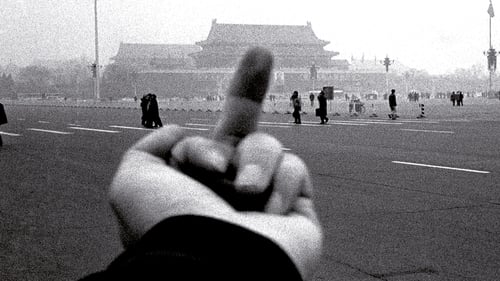
Thanks
An account of the many tribulations that Chinese artist Ai Weiwei, known for his subversive art and political activism, endured between 2008 and 2011, from his rise to world fame via the Internet to his highly publicized arrest due to his frequent and daring confrontations with the Chinese authorities.

Self - Artist
An account of the many tribulations that Chinese artist Ai Weiwei, known for his subversive art and political activism, endured between 2008 and 2011, from his rise to world fame via the Internet to his highly publicized arrest due to his frequent and daring confrontations with the Chinese authorities.

Producer
"Ordos 100" provides a picture of an Ai Weiwei at the pinnacle of his artistic fame, but not yet in the political hot water that was to give him a different kind of notoriety. The film centers on a grand architecture project in Ordos, to be designed by Ai Weiwei.

Director
"Ordos 100" provides a picture of an Ai Weiwei at the pinnacle of his artistic fame, but not yet in the political hot water that was to give him a different kind of notoriety. The film centers on a grand architecture project in Ordos, to be designed by Ai Weiwei.

Producer
As a sequel to Ai Weiwei’s film "Disturbing the Peace," the film "So Sorry" (named after the artist’s 2009 exhibition in Munich, Germany) shows the beginnings of the tension between Ai Weiwei and the Chinese Government. In "So Sorry," you see the investigation led by Ai Weiwei studio to identify the students who died during the Sichuan earthquake as a result of corruption and poor building constructions leading to the confrontation between Ai Weiwei and the Chengdu police. After being beaten by the police, Ai Weiwei traveled to Munich, Germany to prepare his exhibition at the museum, Haus der Kunst. The result of his beating led to intense headaches caused by a brain hemorrhage and was treated by emergency surgery. These events mark the beginning of Ai Weiwei’s struggle and surveillance at the hands of the state police.

Director
As a sequel to Ai Weiwei’s film "Disturbing the Peace," the film "So Sorry" (named after the artist’s 2009 exhibition in Munich, Germany) shows the beginnings of the tension between Ai Weiwei and the Chinese Government. In "So Sorry," you see the investigation led by Ai Weiwei studio to identify the students who died during the Sichuan earthquake as a result of corruption and poor building constructions leading to the confrontation between Ai Weiwei and the Chengdu police. After being beaten by the police, Ai Weiwei traveled to Munich, Germany to prepare his exhibition at the museum, Haus der Kunst. The result of his beating led to intense headaches caused by a brain hemorrhage and was treated by emergency surgery. These events mark the beginning of Ai Weiwei’s struggle and surveillance at the hands of the state police.

Editor
Beijing: The Second Ring is a document of the two opposite views of traffic flow on 33 bridges along Beijing’s Second Ring. The entire piece is made up of 66 segments.

Cinematography
Beijing: The Second Ring is a document of the two opposite views of traffic flow on 33 bridges along Beijing’s Second Ring. The entire piece is made up of 66 segments.

Producer
Beijing: The Second Ring is a document of the two opposite views of traffic flow on 33 bridges along Beijing’s Second Ring. The entire piece is made up of 66 segments.

Director
Beijing: The Second Ring is a document of the two opposite views of traffic flow on 33 bridges along Beijing’s Second Ring. The entire piece is made up of 66 segments.

Editor
Beijing: The Third Ring is a document of the two opposite views of traffic flow on 55 bridges along Beijing’s Third Ring. The entire piece is made up of 110 segments.

Cinematography
Beijing: The Third Ring is a document of the two opposite views of traffic flow on 55 bridges along Beijing’s Third Ring. The entire piece is made up of 110 segments.

Producer
Beijing: The Third Ring is a document of the two opposite views of traffic flow on 55 bridges along Beijing’s Third Ring. The entire piece is made up of 110 segments.

Director
Beijing: The Third Ring is a document of the two opposite views of traffic flow on 55 bridges along Beijing’s Third Ring. The entire piece is made up of 110 segments.

Editor
Shot in one-minute increments, Ai's video obsessively documents daily life along Chang'an Boulevard, a thriving road that bisects the capital city along its east-west axis. ("Chang'an" literally means "long peace.") Ai and his team of videographers stopped at 50-meter intervals to record each fixed shot. The result is an impassive yet revelatory videologue that charts the blood flow of Beijing through its supermodern heart to its impoverished extremities.

Cinematography
Shot in one-minute increments, Ai's video obsessively documents daily life along Chang'an Boulevard, a thriving road that bisects the capital city along its east-west axis. ("Chang'an" literally means "long peace.") Ai and his team of videographers stopped at 50-meter intervals to record each fixed shot. The result is an impassive yet revelatory videologue that charts the blood flow of Beijing through its supermodern heart to its impoverished extremities.

Producer
Shot in one-minute increments, Ai's video obsessively documents daily life along Chang'an Boulevard, a thriving road that bisects the capital city along its east-west axis. ("Chang'an" literally means "long peace.") Ai and his team of videographers stopped at 50-meter intervals to record each fixed shot. The result is an impassive yet revelatory videologue that charts the blood flow of Beijing through its supermodern heart to its impoverished extremities.

Director
Shot in one-minute increments, Ai's video obsessively documents daily life along Chang'an Boulevard, a thriving road that bisects the capital city along its east-west axis. ("Chang'an" literally means "long peace.") Ai and his team of videographers stopped at 50-meter intervals to record each fixed shot. The result is an impassive yet revelatory videologue that charts the blood flow of Beijing through its supermodern heart to its impoverished extremities.

Arts documentary, first broadcast before Ai Weiwei's arrest by the Chinese authorities in April 2011, and his subsequent release after being detained for 11 weeks. Architect, photographer, curator and blogger, Ai Weiwei is China's most famous and politically outspoken contemporary artist. Alan Yentob explores the story of Ai Weiwei's life and art, and reveals how this most courageous and determined of artists continues to fight for artistic freedom of expression while living under the restrictive shadows of authoritarian rule.

Producer
The documentary depicts a complete picture of a chain in the cat-trading industry. Since the end of 2009 when the government began soliciting expert opinion for the Animal Protection Act, the focus of public debate has always been on whether one should be eating cats or not, or whether cat-eating is a Chinese tradition or not, there are even people who would go as far as to say that the call to stop eating cat meat is "imposing the will of the minority on the majority". Yet the "majority" does not understand the complete truth of cat-meat trading chains: cat theft, cat trafficking, killing cats, selling cats, and eating cats.

Director
The documentary depicts a complete picture of a chain in the cat-trading industry. Since the end of 2009 when the government began soliciting expert opinion for the Animal Protection Act, the focus of public debate has always been on whether one should be eating cats or not, or whether cat-eating is a Chinese tradition or not, there are even people who would go as far as to say that the call to stop eating cat meat is "imposing the will of the minority on the majority". Yet the "majority" does not understand the complete truth of cat-meat trading chains: cat theft, cat trafficking, killing cats, selling cats, and eating cats.

Editor
In June 2008, Yang Jia carried a knife, a hammer, a gas mask, pepper spray, gloves and Molotov cocktails to the Zhabei Public Security Branch Bureau and killed six police officers, injuring another police officer and a guard. He was arrested on the scene, and was subsequently charged with intentional homicide. In the following six months, while Yang Jia was detained and trials were held, his mother mysteriously disappeared. "One Recluse" is a documentary that traces the reasons and motivations behind the tragedy and investigates a trial process filled with shady cover-ups and questionable decisions. The film provides a glimpse into the realities of a government-controlled judicial system and its impact on the citizens’ lives.

Cinematography
In June 2008, Yang Jia carried a knife, a hammer, a gas mask, pepper spray, gloves and Molotov cocktails to the Zhabei Public Security Branch Bureau and killed six police officers, injuring another police officer and a guard. He was arrested on the scene, and was subsequently charged with intentional homicide. In the following six months, while Yang Jia was detained and trials were held, his mother mysteriously disappeared. "One Recluse" is a documentary that traces the reasons and motivations behind the tragedy and investigates a trial process filled with shady cover-ups and questionable decisions. The film provides a glimpse into the realities of a government-controlled judicial system and its impact on the citizens’ lives.

Producer
In June 2008, Yang Jia carried a knife, a hammer, a gas mask, pepper spray, gloves and Molotov cocktails to the Zhabei Public Security Branch Bureau and killed six police officers, injuring another police officer and a guard. He was arrested on the scene, and was subsequently charged with intentional homicide. In the following six months, while Yang Jia was detained and trials were held, his mother mysteriously disappeared. "One Recluse" is a documentary that traces the reasons and motivations behind the tragedy and investigates a trial process filled with shady cover-ups and questionable decisions. The film provides a glimpse into the realities of a government-controlled judicial system and its impact on the citizens’ lives.

Director
In June 2008, Yang Jia carried a knife, a hammer, a gas mask, pepper spray, gloves and Molotov cocktails to the Zhabei Public Security Branch Bureau and killed six police officers, injuring another police officer and a guard. He was arrested on the scene, and was subsequently charged with intentional homicide. In the following six months, while Yang Jia was detained and trials were held, his mother mysteriously disappeared. "One Recluse" is a documentary that traces the reasons and motivations behind the tragedy and investigates a trial process filled with shady cover-ups and questionable decisions. The film provides a glimpse into the realities of a government-controlled judicial system and its impact on the citizens’ lives.

Director
The Shanghai authorities rejected Feng Zhenghu, originated from Wenzhou, Jiejiang, China, from returning to the country for a total of eight times in 2009. On November 4, 2009, Feng Zhenghu attempted to return home for the ninth time but the police from Shanghai used violence and kidnapped him to board a flight to Japan. Feng refused to enter Japan and decided to live in the Immigration Hall at Terminal 1 of the Narita Airport in Tokyo, as an act of protest.

Producer
On December 15, 2008, a citizens' investigation began with the goal of seeking an explanation for the casualties of the Sichuan earthquake that happened on May 12, 2008. The investigation covered 14 counties and 74 townships within the disaster zone, and studied the conditions of 153 schools that were affected by the earthquake. By gathering and confirming comprehensive details about the students, such as their age, region, school, and grade, the group managed to affirm that there were 5,192 students who perished in the disaster. Among a hundred volunteers, 38 of them participated in fieldwork, with 25 of them being controlled by the Sichuan police for a total of 45 times. This documentary is a structural element of the citizens' investigation.

Director
On December 15, 2008, a citizens' investigation began with the goal of seeking an explanation for the casualties of the Sichuan earthquake that happened on May 12, 2008. The investigation covered 14 counties and 74 townships within the disaster zone, and studied the conditions of 153 schools that were affected by the earthquake. By gathering and confirming comprehensive details about the students, such as their age, region, school, and grade, the group managed to affirm that there were 5,192 students who perished in the disaster. Among a hundred volunteers, 38 of them participated in fieldwork, with 25 of them being controlled by the Sichuan police for a total of 45 times. This documentary is a structural element of the citizens' investigation.

On December 15, 2008, a citizens' investigation began with the goal of seeking an explanation for the casualties of the Sichuan earthquake that happened on May 12, 2008. The investigation covered 14 counties and 74 townships within the disaster zone, and studied the conditions of 153 schools that were affected by the earthquake. By gathering and confirming comprehensive details about the students, such as their age, region, school, and grade, the group managed to affirm that there were 5,192 students who perished in the disaster. Among a hundred volunteers, 38 of them participated in fieldwork, with 25 of them being controlled by the Sichuan police for a total of 45 times. This documentary is a structural element of the citizens' investigation.

Producer
"Disturbing the Peace" is a documentary of an incident during Tan Zuoren's trial on August 12, 2009. Tan Zuoren was charged with inciting subversion of state power. Chengdu police detained witnessed during the trial of the civil rights advocate, which is an obstruction of justice and violence. Tan Zuoren was charged as a result of his research and questioning regarding the 5.12 Wenchuan students' casualties and the corruption resulting poor building construction. Tan Zuoren was sentenced five years to prison.

Director
"Disturbing the Peace" is a documentary of an incident during Tan Zuoren's trial on August 12, 2009. Tan Zuoren was charged with inciting subversion of state power. Chengdu police detained witnessed during the trial of the civil rights advocate, which is an obstruction of justice and violence. Tan Zuoren was charged as a result of his research and questioning regarding the 5.12 Wenchuan students' casualties and the corruption resulting poor building construction. Tan Zuoren was sentenced five years to prison.

Self
"Disturbing the Peace" is a documentary of an incident during Tan Zuoren's trial on August 12, 2009. Tan Zuoren was charged with inciting subversion of state power. Chengdu police detained witnessed during the trial of the civil rights advocate, which is an obstruction of justice and violence. Tan Zuoren was charged as a result of his research and questioning regarding the 5.12 Wenchuan students' casualties and the corruption resulting poor building construction. Tan Zuoren was sentenced five years to prison.

Editor
Fairytale chronicles the making of an installation-cum-performance of the same name. In 2007, Ai Weiwei invited 1001 Chinese citizens of varying ages and backgrounds to travel to Kassel, Germany, for one week each, all expenses paid. This film describes the many challenges facing the artist and his volunteers in coordinating the work.

Producer
Fairytale chronicles the making of an installation-cum-performance of the same name. In 2007, Ai Weiwei invited 1001 Chinese citizens of varying ages and backgrounds to travel to Kassel, Germany, for one week each, all expenses paid. This film describes the many challenges facing the artist and his volunteers in coordinating the work.

Director
Fairytale chronicles the making of an installation-cum-performance of the same name. In 2007, Ai Weiwei invited 1001 Chinese citizens of varying ages and backgrounds to travel to Kassel, Germany, for one week each, all expenses paid. This film describes the many challenges facing the artist and his volunteers in coordinating the work.

Editor
Beijing 2003 is a video about the city that the artist lives in, and its people. Participants include assistants Liang Ye and Yang Zhichao, and driver Wu. The piece took 16 days to complete, starting on October 18, 2003. Beginning below the Dabeiyao highway interchange, the vehicle from which the video is shot travels every street within the 'fourth ring' of Beijing, one by one. Approximately 2,400 kilometers and 150 hours of footage later, it ends where it began: below the Dabeiyao highway interchange. Through the windshield, the camera objectively investigates all visual information that appears before the vehicle - the spatial state of the city's streets, the endlessly changing times, scenery, movements, behavior and other aspects - thoroughly, meticulously, and calmly recording the megacity of Beijing through a single lens. The sum of the entire process becomes the meaning of the work.

Cinematography
Beijing 2003 is a video about the city that the artist lives in, and its people. Participants include assistants Liang Ye and Yang Zhichao, and driver Wu. The piece took 16 days to complete, starting on October 18, 2003. Beginning below the Dabeiyao highway interchange, the vehicle from which the video is shot travels every street within the 'fourth ring' of Beijing, one by one. Approximately 2,400 kilometers and 150 hours of footage later, it ends where it began: below the Dabeiyao highway interchange. Through the windshield, the camera objectively investigates all visual information that appears before the vehicle - the spatial state of the city's streets, the endlessly changing times, scenery, movements, behavior and other aspects - thoroughly, meticulously, and calmly recording the megacity of Beijing through a single lens. The sum of the entire process becomes the meaning of the work.

Producer
Beijing 2003 is a video about the city that the artist lives in, and its people. Participants include assistants Liang Ye and Yang Zhichao, and driver Wu. The piece took 16 days to complete, starting on October 18, 2003. Beginning below the Dabeiyao highway interchange, the vehicle from which the video is shot travels every street within the 'fourth ring' of Beijing, one by one. Approximately 2,400 kilometers and 150 hours of footage later, it ends where it began: below the Dabeiyao highway interchange. Through the windshield, the camera objectively investigates all visual information that appears before the vehicle - the spatial state of the city's streets, the endlessly changing times, scenery, movements, behavior and other aspects - thoroughly, meticulously, and calmly recording the megacity of Beijing through a single lens. The sum of the entire process becomes the meaning of the work.

Director
Beijing 2003 is a video about the city that the artist lives in, and its people. Participants include assistants Liang Ye and Yang Zhichao, and driver Wu. The piece took 16 days to complete, starting on October 18, 2003. Beginning below the Dabeiyao highway interchange, the vehicle from which the video is shot travels every street within the 'fourth ring' of Beijing, one by one. Approximately 2,400 kilometers and 150 hours of footage later, it ends where it began: below the Dabeiyao highway interchange. Through the windshield, the camera objectively investigates all visual information that appears before the vehicle - the spatial state of the city's streets, the endlessly changing times, scenery, movements, behavior and other aspects - thoroughly, meticulously, and calmly recording the megacity of Beijing through a single lens. The sum of the entire process becomes the meaning of the work.

Producer
In 2003, the infectious disease SARS quickly spread across China, causing widespread panic. At the peak of the hysteria accompanying the mysterious epidemic, Ai Weiwei and his brother Ai Dan made a short film together, Ai Weiwei’s first. The film depicts the defiantly carefree attitude of their bohemian group of friends against the ominous backdrop of the SARS outbreak.

Director
In 2003, the infectious disease SARS quickly spread across China, causing widespread panic. At the peak of the hysteria accompanying the mysterious epidemic, Ai Weiwei and his brother Ai Dan made a short film together, Ai Weiwei’s first. The film depicts the defiantly carefree attitude of their bohemian group of friends against the ominous backdrop of the SARS outbreak.

Director
Opera in three acts (1926)
New Production! Celebrated contemporary artist Ai Weiwei makes his operatic debut with a new reading of Puccini’s fairy tale of misdirected love, exile and rule by decree. It’s a fitting project for Weiwei, famous for geopolitical installations, sculptures and photography that question authority and champion human rights and expression. From the ominous opening five notes, the score plunges audiences into an uncertain, violent world, seeped in bloodshed and despotism, where the cruel, seductive princess, Turandot (Ukrainian soprano Oksana Dyka), is pursued by a brave suitor (American tenor Michael Fabiano, in a role debut). This staging is performed without the ending added by Puccini's contemporary, Franco Alfano. The brilliant Oksana Lyniv conducts.









